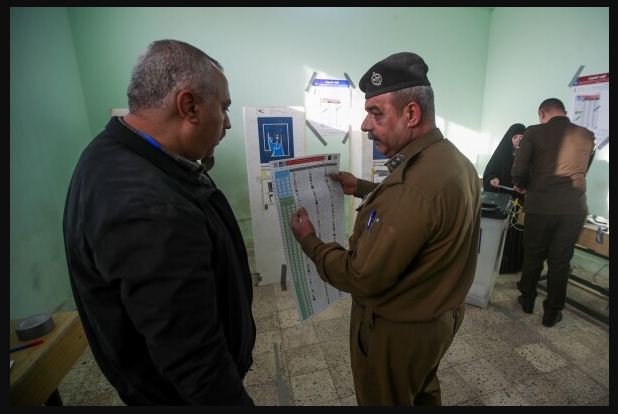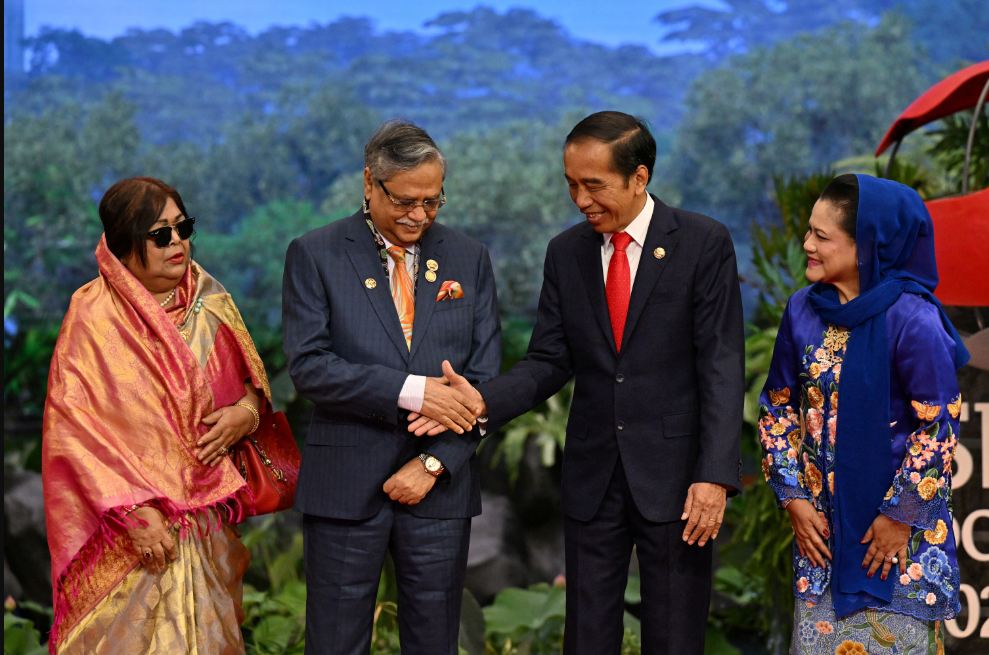Voter apathy and concerns about violence mark Iraq’s first provincial elections in a decade
Baghdad (AP) — Iraqis began voting for the first time in a decade Saturday to select new provincial council members, who in turn will appoint governors, with the outcome seen as a bellwether for the parliamentary election due to take place in 2025.
Saturday’s vote was restricted to military and security personnel and internally displaced people living in camps, with the main polling set to take place on Monday. Results are expected to be announced Tuesday.
Despite relatively high turnout in Saturday’s narrower polling, concerns were raised about a low voter turnout and potential violence spreading in the long-awaited polls on Monday in the country’s 18 provinces.
Muqtada al-Sadr, a powerful Shiite cleric and political leader who officially resigned from politics in 2022 amid a lengthy deadlock over Cabinet formation, has called on his supporters to boycott the provincial elections, saying that their participation would reinforce the dominance of a corrupt political class.
A widespread boycott would “reduce the legitimacy of the elections internationally and internally,” Sadr said in a statement.
In some areas, Sadr’s supporters ripped down electoral posters while several political campaign offices were vandalized. In the southern city of Najaf — a bastion of Sadr’s support — thousands marched on Thursday to urge a boycott of the elections.
Activists who staged mass anti-government protests in 2019 and are opposed to all the ruling parties also widely vowed to sit the polls out.
Apart from those actively boycotting the elections, many are simply apathetic.
Sajad Jiyad, an Iraqi political analyst and fellow at nonpartisan think tank The Century Foundation, pointed out that millions of eligible voters aren’t even registered, and low turnout has been a trend since 2005.
“All signs point to apathy among the general population,” he said. “Young people in particular are not engaged with politics, and no party has captured their imagination.”
Aqeel Al-Rubaie, a perfume shop owner in Baghdad, said that he and his family were sitting the polls out. He said that he saw “no real electoral program,” and widespread corruption, in the political campaigns, with some candidates offering bribes to prospective voters.
“What did the Iraqis gain from the previous elections that would make me think I can benefit from this election?” he said. “Corruption and weapons are still rampant in the country. Unemployment and services are not available.”
The Independent High Electoral Commission reported a relatively high turnout of 67% in Saturday’s vote, which some observers attributed to the pressure placed on military and security personnel to vote.
“There is a threat against those who don’t participate in the elections” that they will be transferred to an undesirable assignment, said a member of the security forces who spoke on condition of anonymity, because he wasn’t authorized to speak to journalists. “For this reason, everyone will participate, because of the fear of being punished.””
Turnout was also relatively high among the tens of thousands of Yazidis still living in displacement camps in Dohuk province in the semi-autonomous Kurdish area in northern Iraq. They were displaced from their homes in Sinjar nearly a decade ago by incursions of the Islamic State group.
Khalid Abbas, director of higher committee for elections in Dohuk, said that turnout in the camps was 67.6% of registered voters.
Displaced Yazidis largely said they were supporting the Kurdish Democratic Party, the dominant political force in the area.
“If our candidates are successful, we might get our rights,” said Khodeida Ilyas, a Yazidi from Sinjar living in the Sharia camp in Dohuk. “I mean for example, to rebuild Sinjar, get compensation for us, and improve services (in Sinjar). There are no services in our area until now.”
In some areas, the elections could inflame existing political and sectarian tensions. Among them is the Kirkuk province, with a mixed population of Sunnis, Shia, Kurds and Turkmen, which has been the scene of a territorial dispute for years between the central government in Baghdad and that of the semiautonomous northern Kurdish region with its capital in Irbil.
Demonstrations in Kirkuk over the handover of a key facility from federal to local Kurdish authorities turned violent in September, killing one protester and injuring others.
A contentious election law passed in March that increased the size of electoral districts was seen as undermining the chances for smaller parties and independent candidates to win seats.
The law was backed by the Coordination Framework, a coalition of Iran-backed, mainly Shiite parties that is the main rival of Sadr’s bloc. With Sadr’s followers boycotting, the Coordination Framework is likely to be the main beneficiary of the provincial elections.



